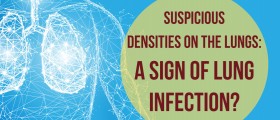
Bacterial pneumonia is a common disease that if untreated, can have serious complications and in some cases it can even lead to death. It is estimated that around 60,000 Americans die every year from bacterial pneumonia.
Pneumonia is a result of an infection of the lungs. The infection can be caused by bacteria, viruses, fungus or other organisms. Bacterial pneumonia is considered to be more dangerous than others because in babies, elderly and in people with weak immune system it can lead to serious complications.
Bacterial infection can be contracted by touching contaminated objects and then touching the nose or mouth, or by inhaling the air that carries the bacteria in droplets. People get in contact with the bacteria all the time but in most cases the lungs fight the infection off by themselves.
It is not unusual for the bacterial pneumonia to develop in the periods when the immune system is weakened, for example after flu or a common cold.
Streptococcus pneumoniae is the most common agent that causes this type of pneumonia. Other bacteria that may cause pneumonia are Chlamydia trachomatis, Legionella pneumophilia and Haemophilus influenzae.
Babies and toddlers are more likely to get viral pneumonia than the bacterial kind, while school-age children are more prone to bacterial pneumonia. Contrary to what most mothers believe, wet clothes and running out of the house without a coat or a scarf does not cause pneumonia. It is more of a result of a wrong set of circumstances.
The symptoms of bacterial pneumonia include fever and chills, fatigue, clammy skin, headache, shortness of breath, chest pain, cough with thick greenish or yellowish discharge and sweating.
The risks for contracting a bacterial pneumonia include smoking, alcohol consumption and a immune system that is impaired due to a previous illness or by old age.
One of the complications that may occur following a bacterial pneumonia is a blood infection or bacteremia. Bacteremia can spread to other organs and therefore requires urgent medical treatment.
In some cases, the infection causes a fluid build-up in the area between the lungs and the pleurae (a membrane in the inner chest). If the fluid becomes infected, it needs to be extracted with a tube introduced inside the chest.
Lungs can get slightly swollen during pneumonia, making it difficult to breathe, but a severe inflammation of the lungs can block the normal delivery of oxygen to the blood.
Bacterial pneumonia is treated with antibiotics. Any form of self-treatment is not recommended as it can cause severe consequences to the health. It is important to take the antibiotics exactly as they are prescribed and to take the whole course of them. Symptoms can improve after a short period of taking antibiotics and some people stop taking them at that point.
This can lead to the progression or worsening of the illness. Pneumonia may come back or the bacteria strain can become resistant to the antibiotics. In these cases the treatment and the recovery period will be longer and carry much more risks.

















Your thoughts on this
Loading...